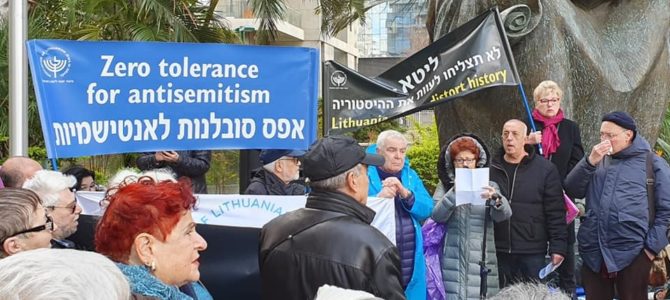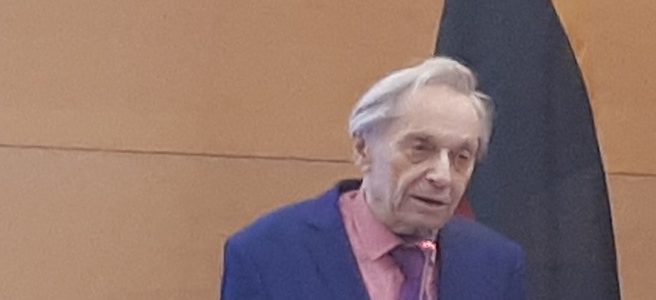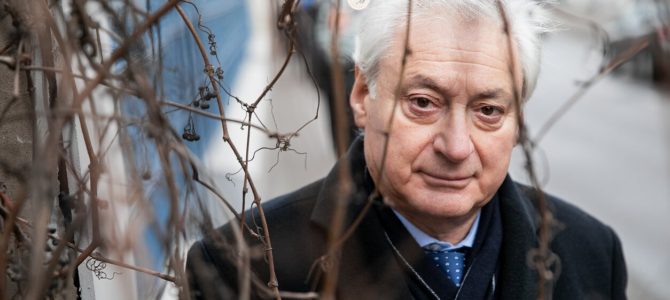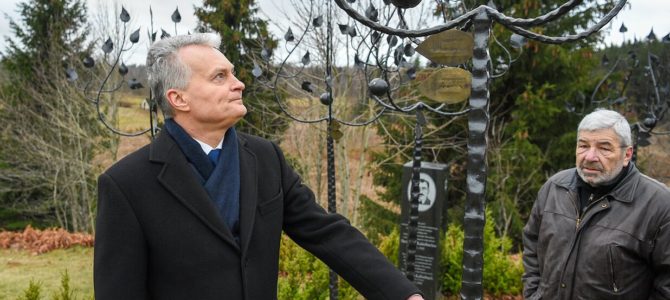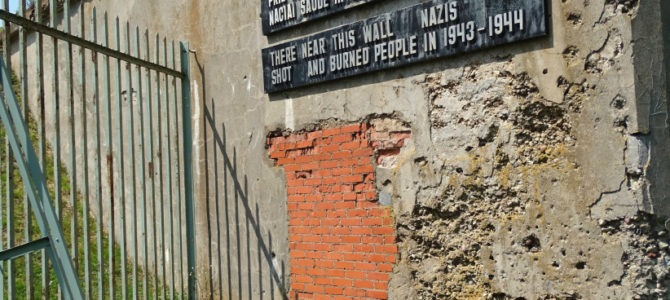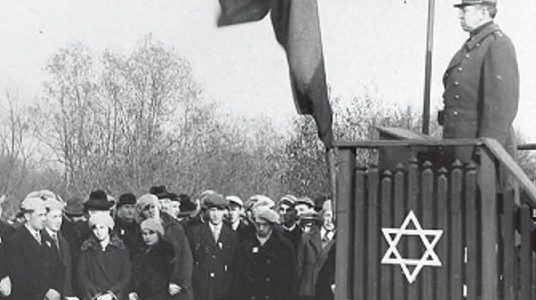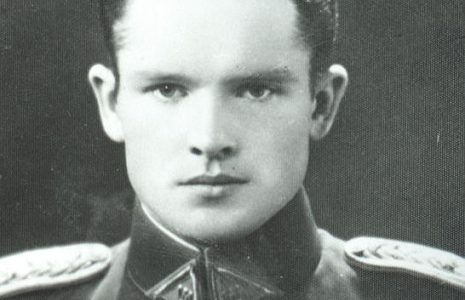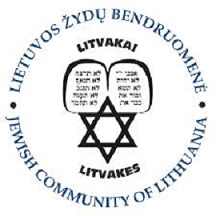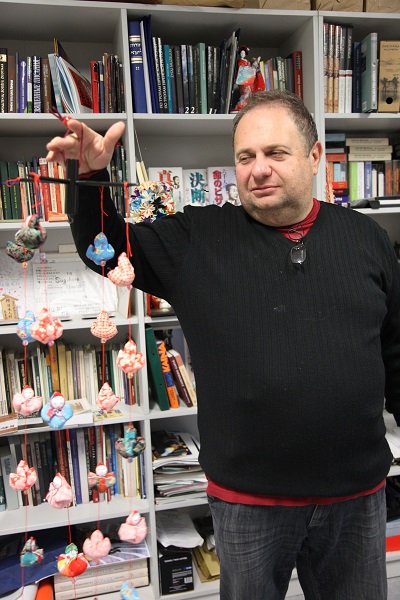On January 28 the Lithuanian Foreign Ministry and the Lithuanian Jewish Community held a commemoration of International Holocaust Day at the ministry.
“The Holocaust is a horrid scar on humanity, on the face of Lithuania. It is a wound which likely will never heal. Let’s hope and try so that humanity never experiences this again. We are endlessly grateful to all the survivors of the Holocaust who are with us here today. In celebrating the 300th anniversary of the birth of the Vilna Gaon, we hope Vilnius will again become a center of gravity for the Jews of the entire world, as the Jerusalem of Lithuania once was,” foreign minister Linas Linkevičius said after presenting red roses to Holocaust survivors attending the event.
A student choir from the Sholem Aleichem ORT Gymnasium performed three songs in Yiddish and Lithuanian.



